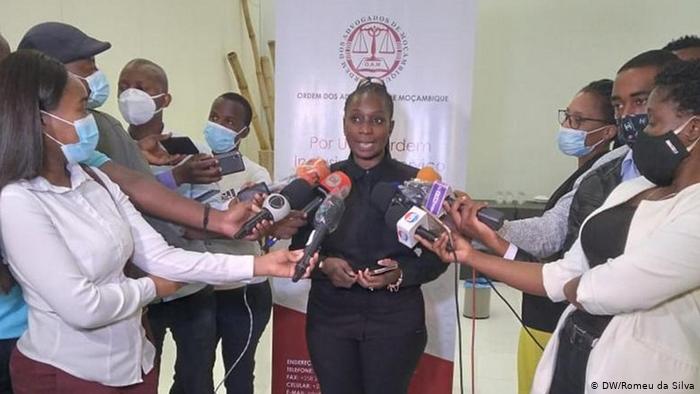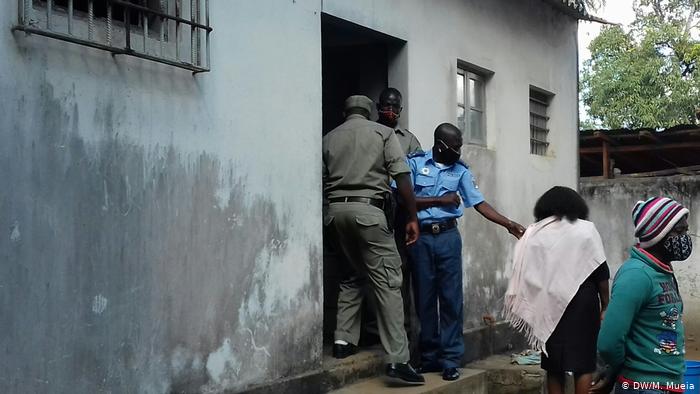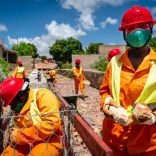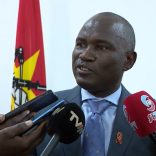Mozambique: Spanish Foundation stresses urgency of efforts to combat child mortality - Watch
Maputo: Team of lawyers will work pro bono during curfew

Ferosa Chaúque Zacarias, President of the Human Rights Commission of the Mozambican Bar Association
At least 50 lawyers from the Human Rights Commission of the Mozambican Bar Association are making themselves available to provide free legal assistance to citizens of Maputo, Matola and the districts of Boane and Marracuene because of the measures in force under the state of disaster.
A statement from the commission describes the initiative as “for the legality and humanisation of the curfew”.
As long as the state of disaster is in force, the lawyers will be ready to intervene “whenever necessary” at the premises of the Police of the Republic of Mozambique (PRM) and Traffic Police (PT), “as well as to provide due legal and judicial assistance to citizens” during the curfew period, reads the press release.
The intention is to complement the work of the police, but also to prevent abuse and aggression, especially against the most vulnerable citizens, chairman of the Commission on Human Rights, Ferosa Chaúque Zacarias, explained to DW Africa.
DW Africa: How has this initiative by the Human Rights Commission of the Bar Association of Mozambique been going?
Ferosa Chaúque Zacarias (FCZ): We are not yet making configurations beyond the announcement, because we prefer to work first and then bring something concrete.
What really interested us was to inform the public that there is this platform or group of lawyers which serves to assist in certain situations. It is an initiative of the [Bar Association’s] Human Rights Commission that does not confront compliance with the measures. On the contrary, we intend to complement the police’s work. We are still devising the best approach with the PRM.
DW Africa: Will people who contact these lawyers not have to pay anything? Is it a free service?
FCZ: It is free, pro bono, it is within the scope of the actions of the Human Rights Commission as well as the Institute of Legal Assistance of the Bar Association.
DW Africa: Have you been contacted by people in a vulnerable situation?
FCZ: Yes, we already have. We have been monitoring, through digital platforms, those cases where there is a way to intervene and we intervene on the same day or the next day. There has already been the case of a lady in which the Commission has already intervened.

DW Africa: The first day of curfew in Mozambique was marked by some abuse by the authorities. Was it thinking of this that the Human Rights Commission of the Bar Association decided to act?
FCZ: It was thinking not only about the state of calamity, but also about the police action in general, which has often been very violent, very aggressive and insensitive, mainly to the most vulnerable citizens. We saw that we could reinforce this action of ours to be an active part, to guarantee the awareness of the communities for the fulfilment [of the measures]. We are not against compliance; on the contrary, we want compliance that respects the legality and human rights of citizens.
DW Africa: Do you think there is a need for more police awareness of these issues? Is this what the success of curfew depends on?
FCZ: It is necessary to guarantee mechanisms so that citizens can comply with the measures. First, the decree must be published. Some citizens have been undisciplined, but there are those who do not comply because they are unaware of the legal instrument. And there are those who do not comply because they cannot stop working.
DW Africa: How can people who want to hire the services of the Human Rights Commission of the Bar Association do it?
FCZ: The first way [of contact] is to go to the Bar Association. If not, they can call one of the numbers that are already circulating on social networks.












Leave a Reply
Be the First to Comment!
You must be logged in to post a comment.
You must be logged in to post a comment.